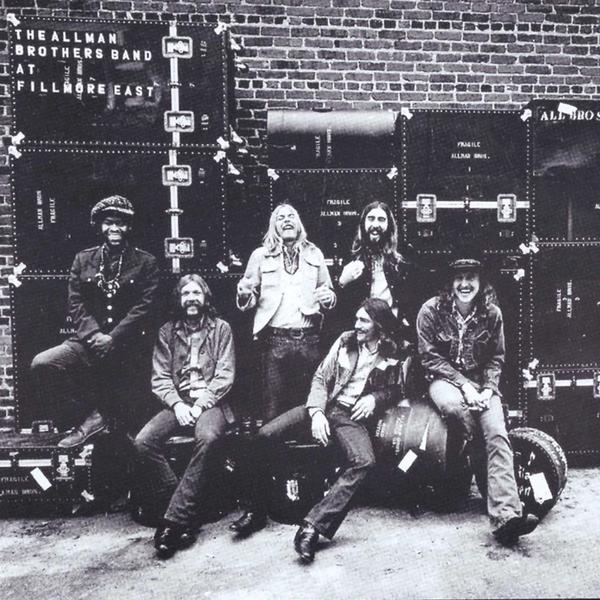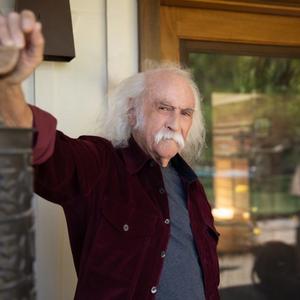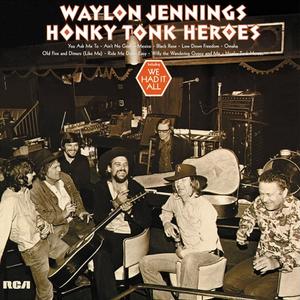The Allman Brothers Band - At Fillmore East
By Hal Horowitz
We reflect on this iconic album for its 50th anniversary, taking a look back at the story of the band's live recording at New York City's iconic Fillmore East.





Link copied


Reflecting on the 50th anniversary of its initial appearance, perhaps the most unfortunate aspect of The Allman Brothers Band’s legendary At Fillmore East was that the group’s frontman, guitarist and spiritual leader Duane Allman never got to fully appreciate the acclaim it received.
The album was released in the July of 1971, and just under three months later Allman was dead, the casualty of a somewhat bizarre motorcycle accident on October 29. While the initial reviews of the double vinyl set were overwhelmingly positive, it would take years for it to attain the renowned status it now commands and so obviously deserves.
Before At Fillmore East hit the shelves, The Allman Brothers were an up-and-coming southern act with two strong - yet commercially disappointing - studio projects to their name. Emerging from various failed lineups featuring Duane and Gregg, such as the Allman Joys and Hourglass, their unusual makeup - a bi-racial group with two drummers - wasn’t exactly typical at the time, or since, for that matter.
But even with a small catalog of songs that have since become classics such as ‘Dreams,’ ‘In Memory of Elizabeth Reed,’ ‘Midnight Rider’ and of course ‘Whipping Post’, their appeal was primarily in the south, given that they were based in Macon, Georgia. They weren’t even the headliners for the run of shows between March 11-13 at the Fillmore East, the famed New York City venue run by Bill Graham - that honor went to Johnny Winter.
Graham was a key ingredient to the Allman’s success. He latched on early, first booking them in December 1969, shortly after the September arrival of their generally ignored self-titled debut. With his support, they played both the east and west coast Fillmore theatres in the years leading up to those 1971 dates, which helped them get a footing to hone their playing.
Even with such a lead-up, the Fillmore East shows did not go off without a hitch.
The first evening was marred by a three-piece horn section added without producer Tom Dowd’s knowledge. He felt the brass diluted the Brothers’ instrumental attack- two guitar/two drum/organ – which they had refined through non-stop stage work. Although the recordings from that night exist somewhere, they have never been commercially available. The horns were (mostly) ditched for the March 12th show, although saxist Rudolph “Juicy” Carter was invited to participate for five selections. Listening to those on 2014’s expanded Fillmore East compilation (which contains all the music made on those final four sets), confirms that his involvement clearly detracted from the energy generated by the six-man roster.
That left the last night on March 13 for Dowd to capture the full majesty of The Allman Brothers Band in flight. And they delivered.
It was a weird scene, to say the least. There was a bomb threat that caused the theatre to be evacuated, delaying the start of the evening’s second show. But six of the seven tracks that comprised the initial double vinyl package were bagged on those two final appearances of the weekend. It was the only time ‘Mountain Jam’ and ‘Stormy Monday’ were played that weekend, both essential pieces not only from the Fillmore gigs, but in the Allman’s expansive history.
What made the Fillmore experience such a revelation – whether in the original or subsequent re-release packages- was how the Brothers combined their love of blues. That’s best exhibited in their searing version of T-Bone Walker’s ‘Stormy Monday’, and slightly less so with Blind Willie McTell’s rollicking ‘Statesboro Blues’. Supplement that with an uncanny ability to stretch out in jazzy improvisation without diluting their approach. The tricky balance of capture and release provides a thrilling tightrope walk making this performance so memorable.
It doesn’t hurt to have in Gregg Allman, arguably the most passionate white male blues vocalist of his or any generation, aboard. His voice tears into Elmore James’ ‘Done Somebody Wrong’ and a rocked-up take on Muddy Waters’ ‘Trouble No More’, with a passion, grit and emotion that puts him amongst the greatest.
Duane Allman’s mastery of slide and lead guitar was already acknowledged and respected in the industry through his session work with Aretha, Wilson Pickett, Clarence Carter and others. But along with Dickie Betts’ other lead, they created a sonic monster with intertwining guitar lines — best exemplified on lengthy instrumentals like ‘In Memory of Elizabeth Reed’ and the 35-minute ‘Mountain Jam’ — that remains fresh no matter how often you have heard them.
Berry Oakley’s The innovative bass work of Berry Oakley almost acted like a third lead guitar when as he both underpinned the songs and urged them along, as within his thumping work on ‘Don’t Keep Me Wondering’, one of the few originals that didn’t make the first editions of the album but has been included in others. Two drummers with different styles (Jai Johanny “Jaimoe”’s jazzy fills, Butch Trucks’ powerful punch) add the topping to this musically aggressive aggregation.
Although all of the music is live, what ended up on the final release was not exactly as it sounded if you were fortunate enough to be in the audience. Credit producer Dowd. He judiciously cut, pasted and edited various takes — with the Allman’s permission. Take the winding 19 minutes of ‘You Don’t Love Me’, which seamlessly combines the material captured on 20 magnetic tape reels into a whole that has influenced countless bands and artists in the five decades since it was first available.
At Fillmore East became iconic, routinely appearing on top 10 lists of the greatest live recordings lists and even falling at no. 105 on Rolling Stone’s rundown of best albums. It was the band’s and especially Duane Allman’s penultimate achievement, his finest hour (well, actually just under five hours, if you’re counting), and cemented him as one of the most accomplished, influential guitarists and overall musicians in the long history of rock.
It’s an honor he never got a chance to fully embrace.
10/10





